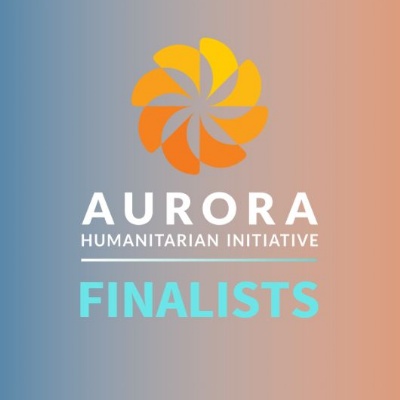2024–2025 Young Aurora finalists announced

The Aurora Humanitarian Initiative, in partnership with United World Colleges International (UWC), Teach for All, and the African Leadership Academy, has announced the three finalists for the 2024–2025 Young Aurora competition: UWC Adriatic (Italy), UWC Dilijan (Armenia), and UWC Mahindra College (India). Launched in 2017, this annual competition empowers young changemakers to develop innovative solutions for humanitarian challenges impacting their local communities. The winner will be announced in March.
Each year, student teams taking part in Young Aurora submit proposals for projects that respond to local humanitarian challenges and compete for a USD 10,000 grant to bring their ideas to life. Young Aurora’s three finalists present their ideas to a panel of distinguished humanitarians, entrepreneurs, and global leaders, who provide personalised feedback and support to help students refine their proposals.
Previous winning projects have included Enlightenment (2023–2024) from UWC Changshu China, which aims to empower rural youth from underprivileged backgrounds by providing them with resources and support to pursue their aspirations; Combili (2022–2023) by UWC Dilijan, which addresses the lack of effective and sustainable bio-waste disposal systems in Yerevan and other cities by creating small ‘urban garden’ models run by local children; Seed of Hope (2021) by Waterford Kamhlaba UWC of Southern Africa, designed to empower young people at Malindza refugee camp in Eswatini through the creation of a youth hub; and Beehive Divide (2020) by a team of students from UWC East Africa, who constructed a beehive fence to address the human-elephant conflict in Sanya Hoyee village, Tanzania.
First-time panelist Robert Bob Okello, the Founder and CEO of Ugandan education technology company Maarifasasa Limited, reflected on his experience with Young Aurora:
“Judging the Young Aurora submissions was an incredibly humbling and inspiring experience. The quality of the projects and the thoughtfulness behind each proposal reflect the power of young minds to drive positive change in the world. It’s heartening to see such innovative and sustainable approaches to tackling real-world challenges, and I have no doubt that these students will continue to make a profound difference in their communities and beyond.”
The 2024-2025 finalists were selected from 19 submissions across UWC schools and colleges, as well as the African Leadership Academy. Their proposals offer innovative solutions to local challenges identified by students, including support for migrant children in building community and confidence, enhancing home insulation and rural and underserved communities, and mitigating health risks associated with traditional cookstoves.
As the teams approach the competition’s finale next month, they are diligently refining their presentations, with the aim of securing funds from Aurora that will allow them to bring their impactful initiatives to life.
Full details of these inspiring projects can be found below.
Dandelion Project — UWC Adriatic
Dandelion addresses the emotional and social needs of migrant children in elementary schools by providing tools for adaptation and integration. The project consists of picture books and interactive workshops designed with input from professionals in developmental psychology. These resources help children explore key topics independently, build confidence, and foster a sense of belonging while embracing their identities. Initially launching in Trieste, Italy—a major migration hub where thousands of children struggle with identity and belonging—the project aims to provide essential mental health support and promote social inclusion.
Rawane, a member of the Dandelion Project, drew inspiration from a personal experience: “Migration goes far beyond the concept of a story or an experience for me; it’s part of my DNA. Growing up in Morocco, I experienced what it feels like to move from an underprivileged area to the economic pulse of the nation. When I think of migrant children, I see emotional struggles that often go unnoticed, and that’s where Dandelion comes in, offering the support needed to help them find a sense of belonging.”
TakToon Project — UWC Dilijan
TakToon, derived from the Armenian words for “warm” and “house,” focuses on creating cost efficient insulation solutions for rural Armenian homes. By repurposing plastic and metallic waste for insulation, the project not only helps vulnerable communities retain warmth but also promotes sustainable recycling practices. Addressing the urgent need for better insulation in aging homes, TakToon reduces both environmental impact and financial burdens on families. Through community education, this initiative fosters energy efficiency and improves living conditions.
Andrea from the TakToon Project notes: “In my first three months in Armenia, I experienced firsthand the harshness of the local temperatures. The difference between me and the local people made me reflect on how even small, often underestimated things can lead to enormous change. We don’t want to bring unaffordable thermal insulation to the market; instead, we aim to create insulation that anyone can afford and improve the conditions of their home.”
The Chulha Project — UWC Mahindra College
The Chulha Project tackles the harmful effects of traditional mud cookstoves, known as chulhas, which produce toxic smoke linked to serious health risks and contribute to deforestation through excessive firewood consumption. By introducing locally manufactured rocket stoves with J-shaped combustion chambers that reduce emissions by up to 86% and lower firewood usage by 50%, the project aims to protect women and children, who are most affected by indoor air pollution. Initially targeting 50 households in Maharashtra’s Mulshi Valley, this scalable initiative intends to empower communities through training programs, sustainable stove production, and peer-driven advocacy for clean cooking solutions.
Leila, a Chulha Project team member, explains: “As the UWC Mahindra College community, we are tightly connected with villages around the college. I believe in our project, because this is a serious issue that hasn’t been tackled before, and it would be a huge achievement for me if a problem that affects the health of these families was eradicated—I would love to give back to these villages as much as I can.”
